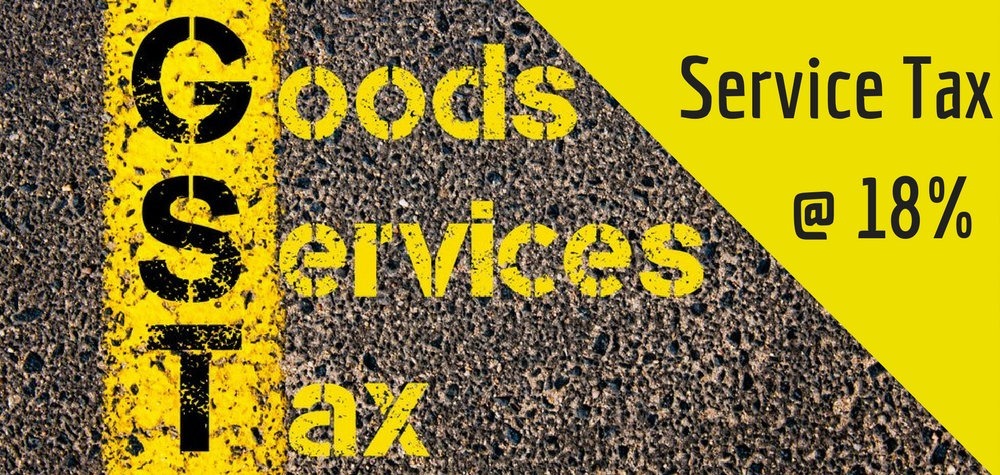Service Tax Will Increase To 18% Under GST; But Exempted For Those Earning Below Rs 20 Lakh/Yr

As per latest information coming out related to implementation of GST regime, it is now clear that service tax is all set to increase under the new tax structure.
As per statements issued by Revenue Secretary Hasmukh Adhia, we have come to know that from 15% current slab, service tax for some services would increase to 18%.
However, under the same changes, service tax for agriculturists have been exempted, and the upper limit of income for service tax payable has also been increased.
Here are the 3 major changes, which are now almost a certainty under GST regime:
Service Tax Increased To 18%
Right now, service taxfor the majority of services is 14%, and two additional cesses: Swachh Bharat Cess and the Krishi Kalyan Cess, which makes overall service tax as 15%.
However, under GST regime, this will increase to 18%.
Hasmukh Adhia said, “Yes, for the services sector the standard rate may move to 18 per cent..”
As we had mentioned in our earlier post, this increase in service tax will mean that restaurant outings and e-commerce purchases can become expensive in the coming days.
Income Limit For Service Tax Increased
The good thing about GST regime is that upper limit of income has been increased for paying service tax. Currently, those who are earning above Rs 10 lakh per year need to be pay service tax.
However, under GST, those who are earning above Rs 20 lakh will be required to pay the tax, which means those who are earning below Rs 20 lakh per year would now get a respite from paying this tax.
Agriculturalists Exempted From Service Tax
In the case of agriculturalists, the new GST will exempt them from paying tax, even if their earning is above Rs 20 lakh.
However, this exemption is only for those agriculturalists, who are either working themselves or have hired their family members for managing the operations. In case any agriculturalist has hired employees and earning more than Rs 20 lakh, then they will need to register under GST.
However, here is a catch: Agriculturalists, who are working in the fields of sericulture, floriculture, dairy, horticulture, fishing would be exempted from paying service tax, even if they employ workers outside their family. And the reason is that, traditionally, these agriculturalists have been exempted from paying tax.
But, regarding these special cases, things are still unclear.
Hasmukh said, “We have not yet decided on the exemption list. That will be decided separately by the Council, I don’t think it will want to tax many agriculture products,”
It seems that the final call regarding GST tax rules for products/services under agriculture would be decided by the GST Council only.
He further said, “Those who are dealing with anything except what we have defined as ‘agriculturalist’ will have to register (under GST). But whether their products are taxable or not will have to be decided by the Council.”
Some other changes under GST regime, related with service tax:
- The service whose current service tax is capped at 15%, will be re-accommodated under reduced slabs. For example transport. Hasmukh said, “Wherever the services at present attract lower than 15 per cent rate of service tax because of certain reasons, we will try to maintain that. The transport sector, for example, attracts lower than 15 percent tax right now. We will put these in either 5 per cent or 12 per cent,”
- Education, healthcare and religious pilgrimage and 57 other services are right now exempted from service tax. The GST Council will take a final call on this list soon.
The GST Council is meet in Srinagar between May 13-18th to finalise the tax slabs under GST and determining the categorization of products.
We will keep you updated as more information comes in..
Source: 1, 2

Please check the quality of the article before posting:
‘Service charge’ has been used. Service tax and service charge cannot be used interchangeably.
Eating out getting expensive is wrong information: restaurants charge vat and service tax, totalling upto 20.5%. When it gets changed to 18%, eating out will get cheaper
Payment of service tax is the responsibility of the service provider, so their income (rather revenue) is considered for threshold. This article indicates that the buyer’s income would be the determining factor. Quite impractical, right?